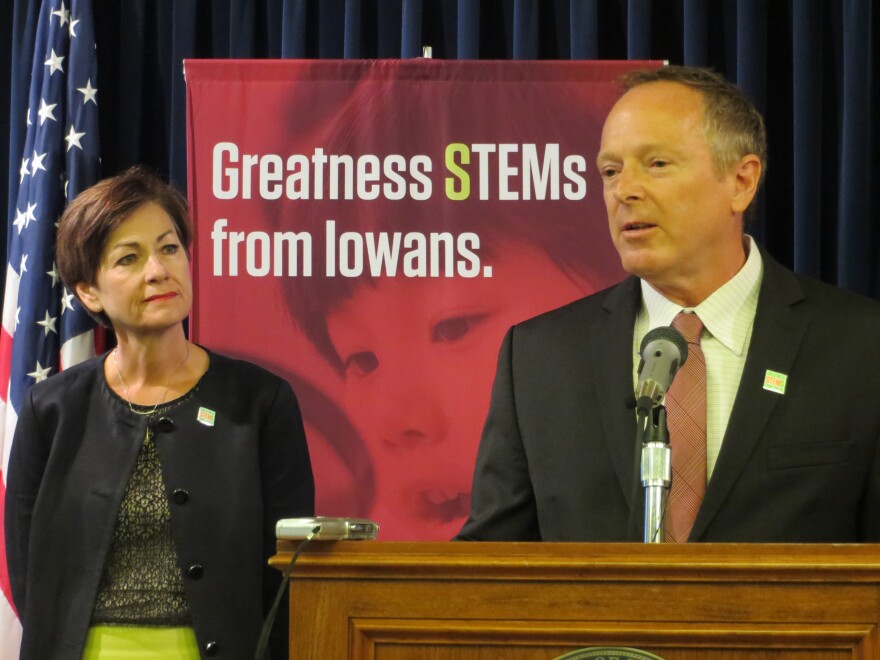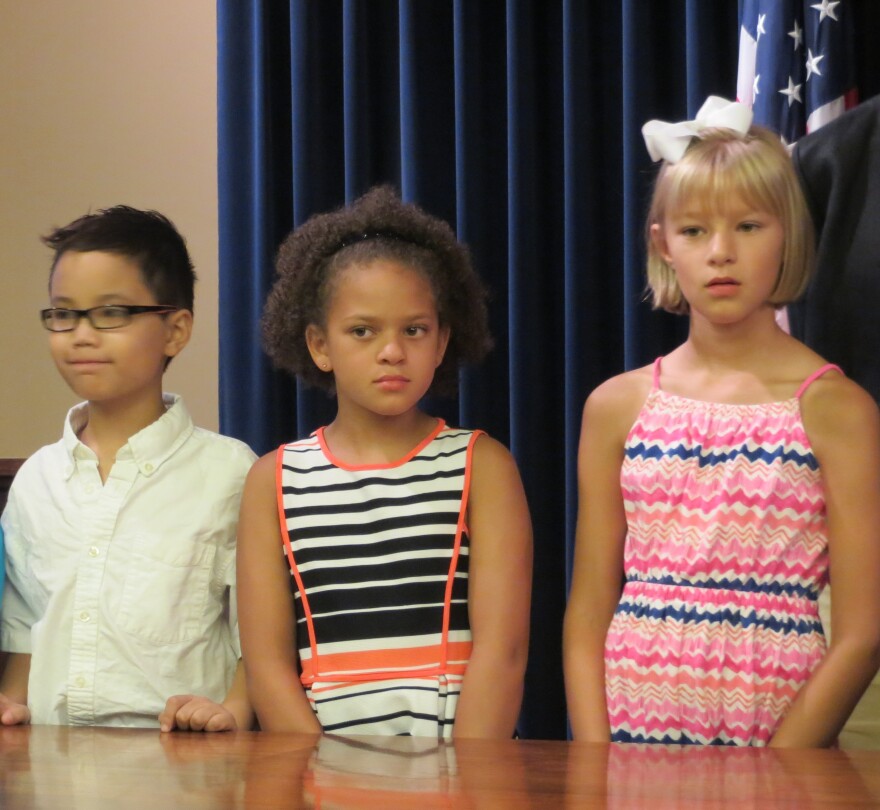A now five-year effort to beef up science and technology education in Iowa schools is paying off, according to a study by Iowa’s three Regents universities. The program is known by the acronym "STEM," which stands for science, technology, engineering, and math.
Backers say boosting STEM fields will help Iowa companies find employees for good-paying jobs in advanced manufacturing, information technology, and other fields. STEM Advisory Council Director Jeff Weld says the results so far are encouraging.
There's more work to do.
“Of ACT test takers this year, 55 percent intend to major in STEM fields in college,” Weld says. “That's up from 49 percent four years ago.”
The greatest gains, says Weld, are among African-American and Hispanic students. Also, more women are enrolling in technical subjects.

“And more first-year teachers are getting licensed in STEM fields,” Weld adds.
Weld says the report on the 2015-16 school year also suggests that students in the program are more interested in staying in Iowa when they graduate compared to students statewide.
Over half of Iowa children have participated in one or more of the STEM programs. But fewer than half of Iowans surveyed say STEM is a priority in their local school districts.
"We're just admitting that there's more work to do," says Lt. Gov. Kim Reynolds, who oversees the STEM initiative for the Branstad administration.
We had a lot of fun getting smarter.
Corporate partners contributed more than $500 thousand in private investments in the program last year.
Waukee elementary school teacher Heather Anderson appeared with the governor and lieutenant governor at a news conference unveiling the report.
She was accompanied by five second-grade students enrolled in the program. In collaborative groups Anderson's students built, tested, and modified a non-electronic pinball machine.
“We had a lot of fun getting smarter,” said student Ethan Nguyen.

